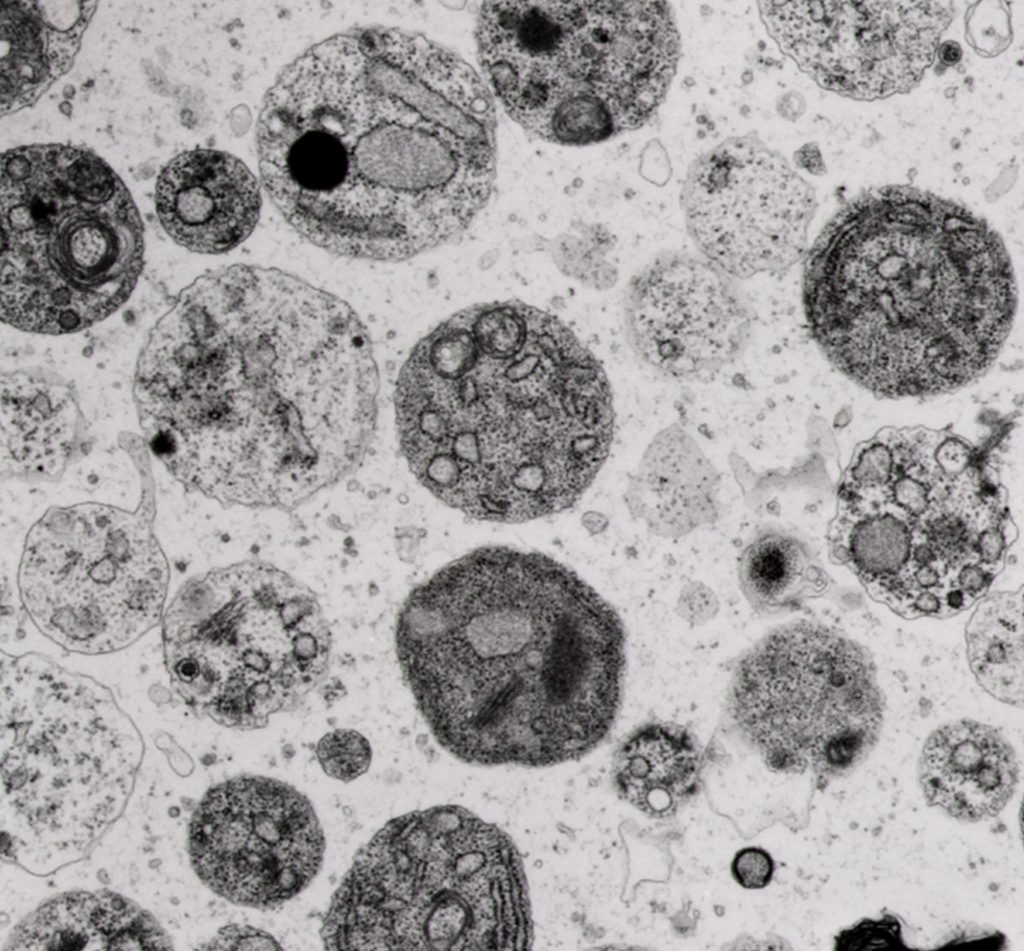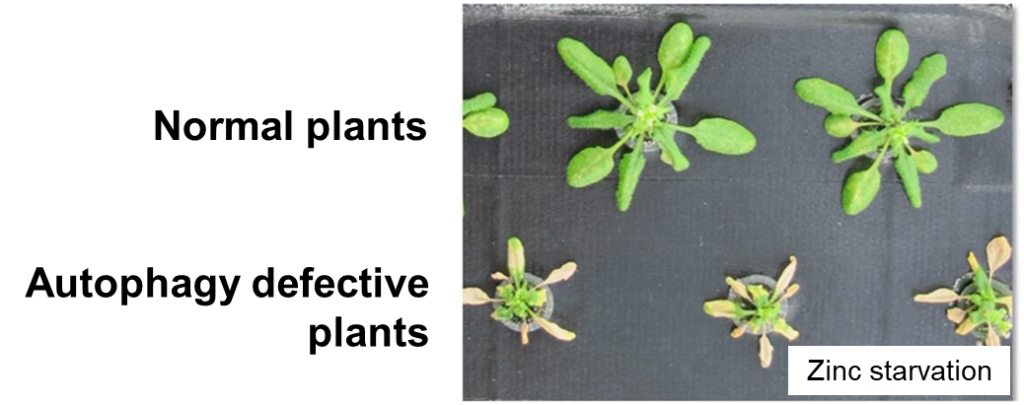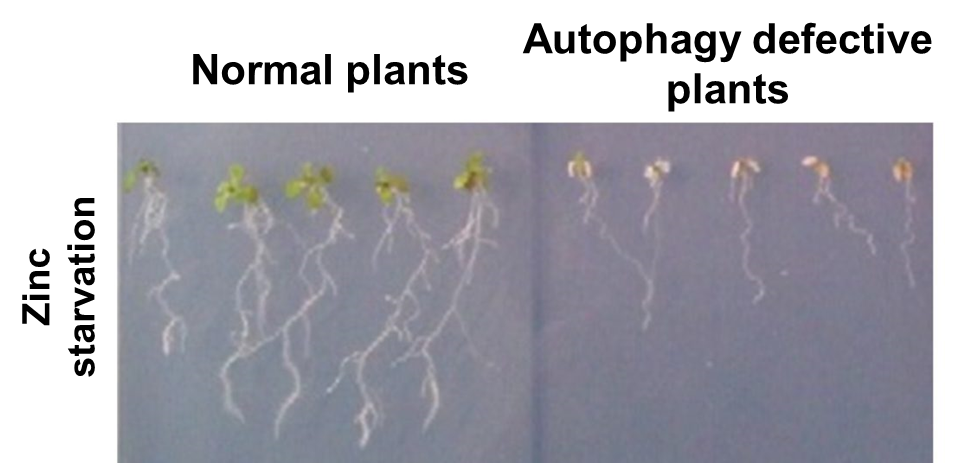Details of the Initiative
Once plants sprout on the earth, they cannot move, so they cannot survive unless they adapt to the ever-changing environment. Therefore, it is not difficult to imagine that autophagy, which plays a role in degrading and reusing self components and maintaining intracellular homeostasis through removal of intracellular harmful substances, is important for plant survival.
Our laboratory conducts research on autotrophic plants with the aim of clarifying under what circumstances, when, and where autophagy, the function of cells eating themselves, is induced, what and how to recognize and degrade it, and what its physiological significance is. Previous studies have shown that when autophagy does not work in plants, this accelerates senescence even in well-nourished plants, inhibits growth under oligotrophic conditions, and the plant dies early under conditions where photosynthesis cannot be achieved owing to insufficient light irradiation. By clarifying the reasons for such phenomena at the molecular level and understanding the mechanism and significance of plant autophagy in detail, we will be able to manipulate autophagy skillfully, making it possible to create useful crops such as environmental stress tolerant and long life-plants. In the future, we aim to contribute to the expansion of new markets for long-life flowering plants, the growth of crops under high-stress conditions, and the reduction of losses of fruits and vegetables in the distribution process after harvesting.



